Review for The Boy and The Heron
Introduction
I never thought that I would see another Hayao Miyazaki movie, which in retrospect is a foolish thought, given just how many times Miyazaki retired, only to make another movie a year or two down the line. But the last time he retired, after the release of The Wind Rises (and Princess Kaguya and When Marnie Was There a year later), he retired Studio Ghibli as well, the film studio that produced all his films from Laputa: Castle in the Sky onwards. Thereafter the Ghibli name was kept to curate the back catalogue and promote the brand; no more feature films. But once again, it wasn’t too long after The Wind Rises that Miyazaki got the itch again. It was seven years in production, but now The Boy and The Heron is finally here on Blu-ray, only the second anime film (after Miyazaki’s Spirited Away) to win the best feature animation Oscar, and also a movie that shattered domestic box office records. Hayao Miyazaki is in his mid-eighties now, and this might just be his final masterpiece. Is it a worthy note with which to cap his legacy?
It was the third year of the war in the Pacific when Mahito Maki’s mother died in the air raid that turned Tokyo into a firestorm. The following year, his father packed everything up, and along with Mahito moved to the country, where he would work in an aeronautical factory, and where he was now married to his late wife’s younger sister Natsuko, with a new sibling for Mahito on the way.
Still mourning his mother, and haunted by the night she died, Mahito was ambivalent at best about this change in his life. There is a strange tower in the forest in the grounds of his new home, and an ominous grey heron that haunts the estate. Then one day, the heron speaks to Mahito, telling him his mother still lives in another world, and he can be reunited with her. Mahito distrusts the bird, but then one day his aunt vanishes into the forest. Mahito has no choice but to follow her.
The Disc
The Boy and The Heron gets a 1.85:1 widescreen 1080p transfer on this disc, with the choice between DTS-HD MA 7.1 Surround English and Japanese, as well as DD 5.1 Surround English Audio Descriptive. You also have the choice between a signs only track, translated English subtitles for the Japanese dialogue, and hard of hearing “dubtitles” for the English audio. The audio options are unlocked so you can change them on the fly while you are watching. It’s an excellent transfer of a recent film, nigh on flawless when it comes to the visuals, clear, sharp and colourful, bringing another magical Ghibli world to life. There are no issues with compression or the like, with some frenetic scenes full of motion to push the format to its limits. The dialogue is clear, the subtitles are accurately timed and free of typos, and the surround works well to make for an immersive experience. Joe Hisaishi’s score is understated and evocative as usual. If you want better than this, The Boy and The Heron is also available on UHD.
Extras
For so long, Optimum/Studiocanal was synonymous with Studio Ghibli releases in the UK, so much so that it feels weird seeing Ghibli on any other label. This time Elysian do the honours, but given that they are effectively cloning GKids release in the US, you’ll know that the disc attains the expected standards for anime releases. The disc boots to an animated menu, and you’ll find the following extras.
Feature Length Storyboards
Interview with Composer Joe Hisaishi (10:21)
Interview with Producer Toshio Suzuki (4:43)
Interview with Supervising Animator Takeshi Honda (19:40)
Drawing with Takeshi Honda (27:16)
“Spinning Globe” Music Video (5:13)
Teasers & Trailers (4:12)
Conclusion
You can take The Boy and The Heron at two levels; if you’re a Ghibli neophyte, never before partaken of the Japanese Disney, or if you’re well versed in the back catalogue, having seen everything from Panda Go Panda to Ronja the Robber’s Daughter. If you’re fresh to the world of Ghibli, then you’ll find much to appreciate about The Boy and The Heron, an exquisitely beautiful film, a complex and somewhat dark fairy tale, and another example of Hayao Miyazaki’s measured and evocative storytelling.
I’m not sure it’s Oscar worthy, given that it takes an age to get to the meat of the story, instead dwelling on Mahito’s nihilistic melancholy for the better part of half of the film before the heron moves things along. And unlike other Miyazaki fairy tales, The Boy and The Heron is somewhat bereft of humour. It’s a fantasy set during a dark time in history, and during those rare moments that it does try some levity, it feels forced and out of place, atonal even. The Boy and The Heron does feel somewhat morose to me, and the ending is understated, anticlimactic even. But as I’ve already said, it’s an exemplary piece of filmmaking, and well worth watching.
Then there is the experience of watching The Boy and The Heron if you are a Ghibli fan, and have seen the other films in the studio’s filmography. In some ways, it reminds me of Die Another Day, the 20th film in the Bond franchise, and the 40th Anniversary release, a film which took pains to reference the earlier Bond movies. There are touches of many of the Ghibli movies in The Boy and The Heron. Bluntly put, you could call it Spirited Away as seen through the lens of Grave of the Fireflies, something that contributes to that morose feeling I mentioned. It isn’t as if Ghibli hasn’t made fairy tales with dark overtones before; Porco Rosso is such a story set during the pre-war years against the backdrop of the rise of fascism, but The Boy and The Heron does miss out on the lightness that could contrast its darkness to better effect.
It’s as if Miyazaki has tried to squeeze everything that’s meaningful in his films over the last 40 years into this one movie. You have the wartime setting; the ambivalence of being on the ‘wrong’ side of the conflict. There’s a little bit of the eco-message from films like Nausicaa, the high fantasy of films like Spirited Away, a whole lot of family dynamics, a coming of age element, and there is the autobiographical nature of the characters and the story, reflections of Miyazaki’s own childhood. Ghibli and Miyazaki have done all of this before, and to better effect than in The Boy and The Heron, which comes across as more bloated and indulgent.
There is an engaging story at the heart of the film though, about loss and grief, and coming to terms with that loss and moving on. It is a bit of a trope that Mahito doesn’t take to his new circumstances well, with his father having remarried his aunt, although his reaction is internal rather than demonstrative, becoming more isolated. What is surprising is his reaction to the heron, which promises to reunite him with his mother. Mahito has become jaded and cynical enough to suspect the heron of manipulating him with lies, and he doesn’t jump at the chance for a magical adventure. You can expect that given the reality of the wartime world he’s living in. In the end he has to be blackmailed into joining the heron, and that becomes the first step in building a relationship with his new family.
In terms of purely the cinematic experience, The Boy and The Heron is Miyazaki at the top of his game. You can see why people have been justifiably raving about the film since its release, and if this is the last film we see from him, it is one hell of a note to retire on. But The Boy and The Heron isn’t a film without issues, and when it comes to the kind of magic that we associate with Studio Ghibli, the kind of films that audiences lose themselves in, The Boy and The Heron isn’t quite there. You can get The Boy and The Heron from Anime on Line and from mainstream retailers.
The Boy and The Heron will be available to rent and buy on digital from 16th September, on 4K UHD, Blu-ray, and DVD from 23rd September, and with a limited edition Steelbook available from 7th October.
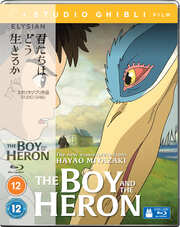






























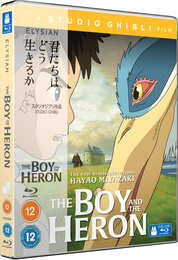
































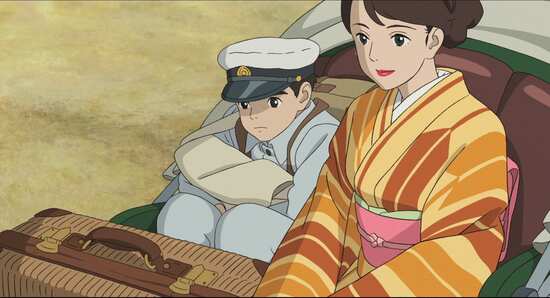
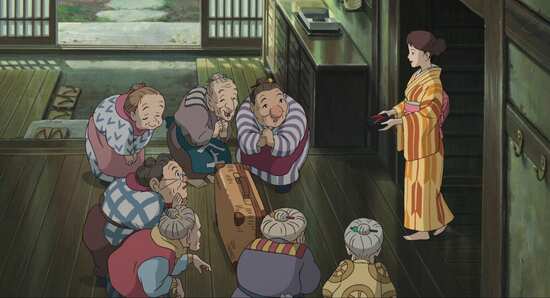
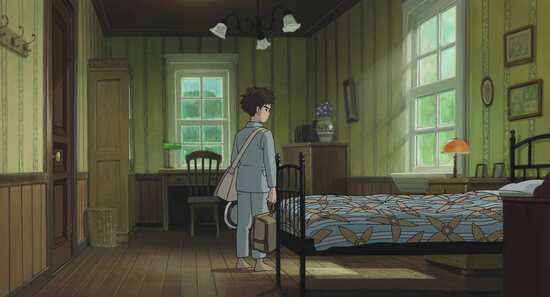
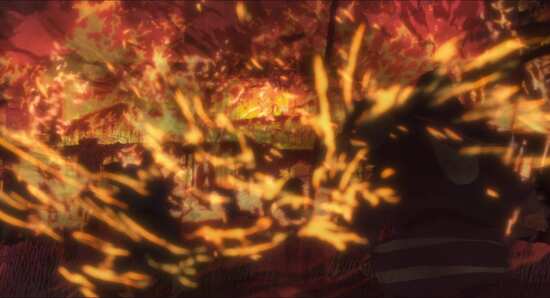
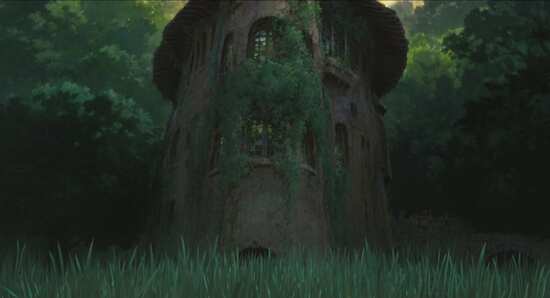
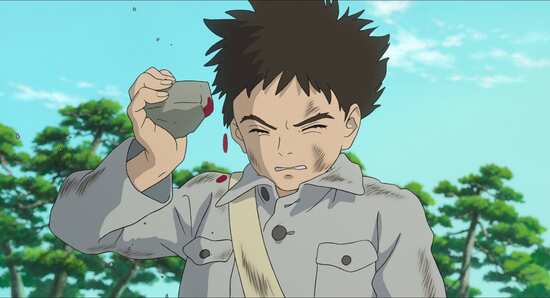
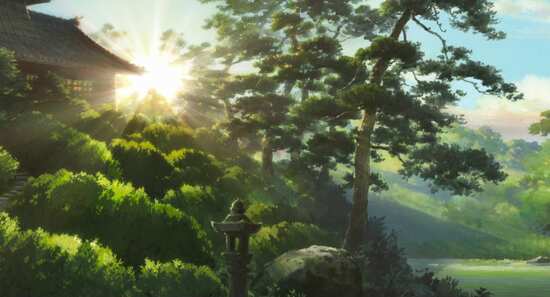
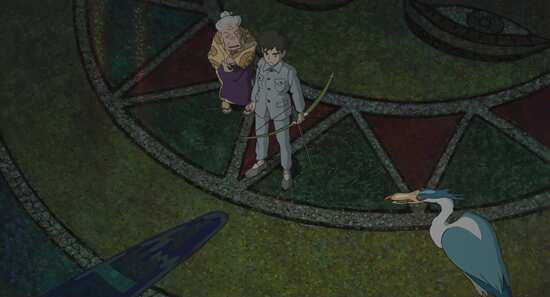
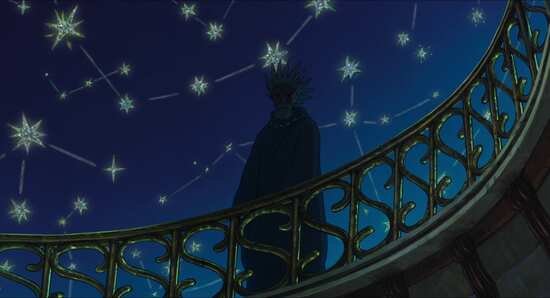
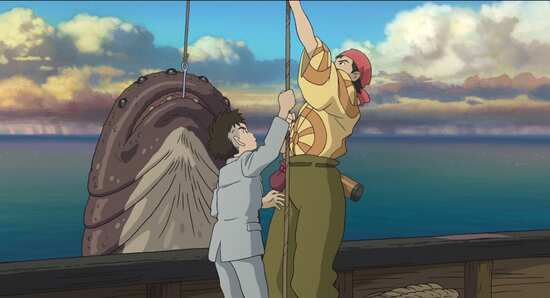
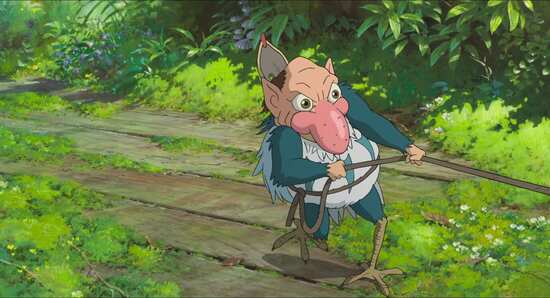
Your Opinions and Comments
Be the first to post a comment!